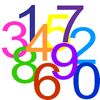Skip over navigation

Four-digit Targets
Fifteen Cards
Factor-multiple Chains


Or search by topic
Number and algebra
Geometry and measure
Probability and statistics
Working mathematically
Advanced mathematics
For younger learners
Trial and Improvement

Trial and Improvement
Simply 'having a go' is a great way to make a start on a mathematical problem. Whatever happens, you will have learnt more about the situation and can then tweak your approach. These activities all lend themselves to this 'trial and improvement' way of working.
Four-digit Targets Age 7 to 11Challenge Level 


Age 7 to 11
Challenge Level 





You have two sets of the digits 0-9. Can you arrange these in the five boxes to make four-digit numbers as close to the target numbers as possible?
Fifteen Cards Age 7 to 11Challenge Level 


Age 7 to 11
Challenge Level 





Can you use the information to find out which cards I have used?
Factor-multiple Chains Age 7 to 11Challenge Level 


Age 7 to 11
Challenge Level 





Can you see how these factor-multiple chains work? Find the chain which contains the smallest possible numbers. How about the largest possible numbers?
You may also like
Digging Into Geometry
Dig deeply into geometrical ideas by having a go at the tasks in this Primary student feature.
More Playing with Numbers Upper Primary
More resources to support understanding multiplication and division through playing with numbers

